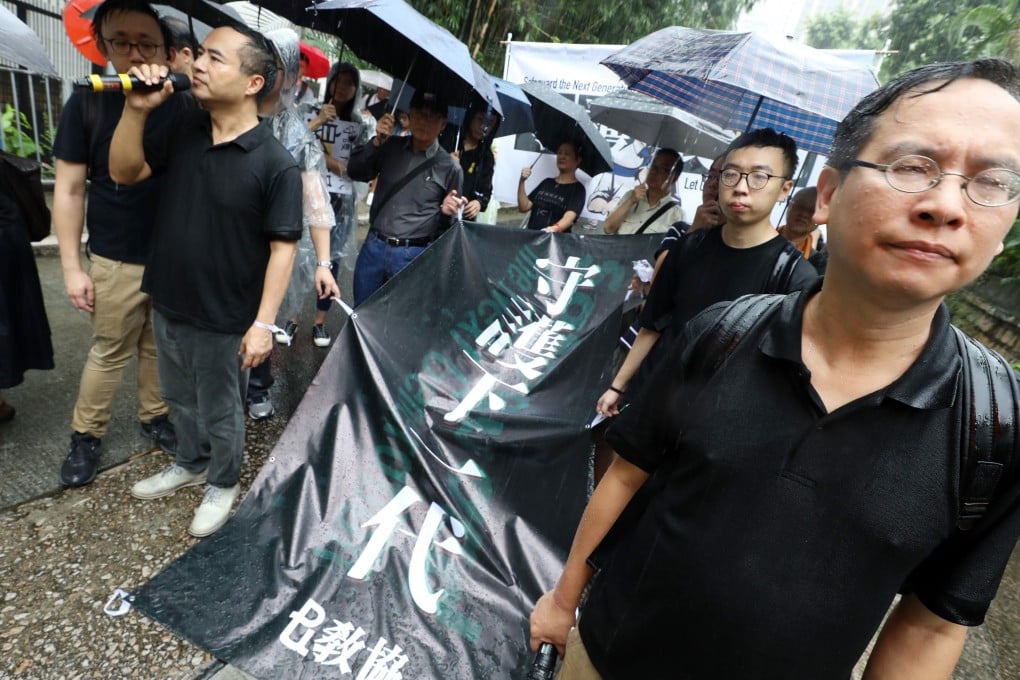Education Bureau severs ties with Hong Kong’s biggest teachers’ union, hours after Chinese state media call group a ‘malignant tumour’
- Bureau spokesman accuses opposition-leaning Professional Teachers’ Union of adding ‘fuel to the fire, and this violates the mission of education’
- Analysts warn move could mark start of fresh crackdown against groups deemed to be ‘unpatriotic’ or overly critical

Hong Kong’s Education Bureau is taking the unprecedented step of cutting all ties with the city’s largest teachers’ union and stripping it of its status as a professional group after two Communist Party mouthpieces branded the body a “malignant tumour” that must be eradicated.
The government’s move, according to analysts, could mark the start of a fresh crackdown against groups deemed to be “unpatriotic” or overly critical, with some warning that sections of the legal and media communities might come under threat next.
Explaining the decision, a spokesman for the bureau said on Saturday that PTU comments and actions in recent years had rendered it no different from any other political group, a point also made by one of the state media commentaries published just hours earlier.
He pointed to its participation in both the Tiananmen vigil alliance – which the PTU confirmed on Thursday it had withdrawn from – and the Civil Human Rights Front, organiser of the city’s yearly July 1 march, and accused the union of bringing politics to campuses through its promotion of teacher strikes.